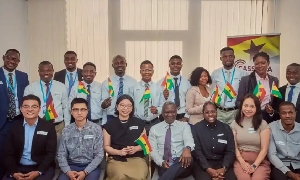Mr John Chigbu, Chief Executive Officer, Cassona Ghana, has appealed to the Government to make the importation of medical imaging equipment duty-free to help reduce the cost of such products.
He said Cassona had identified that many private health facilities were not resourceful enough to purchase and maintain medical imaging equipment as they were expensive.
Delivering a message ahead of Ghana’s Independence Day Celebration in Accra, Mr Chigbu said lack of access to such equipment undermined quality healthcare delivery as some diseases required special diagnoses to aid treatment.
Medical imaging encompasses technologies such as ultrasonography, x-rays, mammography, computed tomography (CT scans), and nuclear medicine.
Access to capital and high interest rates were major disincentive to health facilities to procure life-saving equipment to provide quality healthcare delivery for the citizenry, Mr Chigbu said.
“If I am importing equipment valued at $100,000 and I pay 40 per cent of duty, the cost is now $140,000.
“It is the person who buys the equipment that pays the added amount so it is expensive. The Government should collectively come to the realisation that what we want to do is to make it affordable,” Mr Chigbu said.
He congratulated Ghana for attaining 67 years of independence and commended the country for consolidating its democracy and ensuring political stability over the years.
He said Cassona was aware of the challenges affecting the ability of health facilities to access medical imaging equipment and gave an assurance that the company would continue to support health facilities in the country to access affordable and efficient medical imaging equipment.
Mr Chigbu said the company would be establishing five well equipped centres of excellence across the country this year to support quality healthcare delivery and training.
He said the Centre would provide internship opportunities for students to acquire hands-on experience on how to operate the machines.
Mr Chigbu said Cassona would also donate specialised medical imaging equipment to medical schools to aid the training of students.
“A system of re-education is required to create a population that is inward looking. Right now we are outward-looking. We need to train our local engineers by giving them the equipment to learn.
“Our diagnostic centre when opened, will reserve a week for students to have clinicals,” he said.
Health News of Wednesday, 6 March 2024
Source: GNA

















